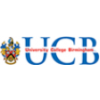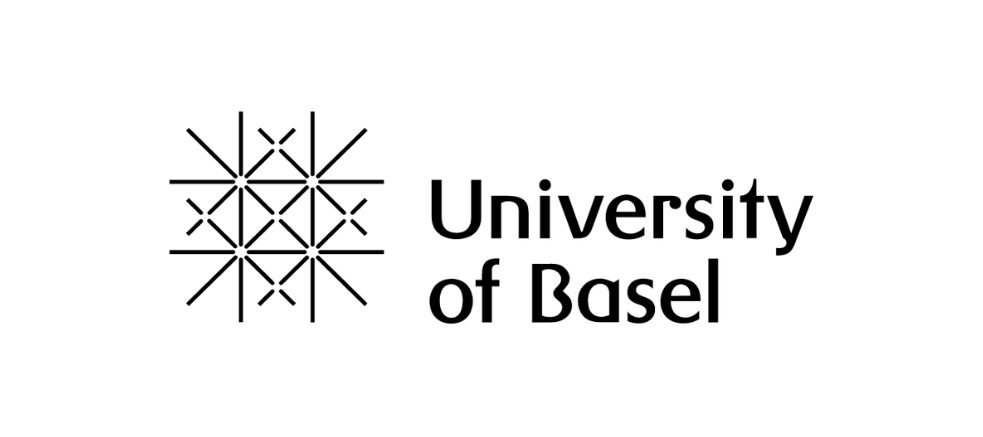Snabbfakta
-
- Durham
Ansök senast: 2025-02-15
Assistant Professor in Computer Science Department and Durham Law School (Research & Education)
Working at Durham University
A globally outstanding centre of teaching and research excellence, a warm and friendly place to work, a unique and historic setting - Durham is a university like no other.
As one of the UK's leading universities, Durham is an incredible place to define your career. The University is located within a beautiful historic city, home to a UNESCO World Heritage Site, and surrounded by stunning countryside. Our talented scholars and researchers from around the world are tackling global issues and making a difference to people's lives.
We believe that inspiring our people to do outstanding things at Durham enables Durham people to do outstanding things in the world. Being a part of Durham is about more than just the success of the University, it's also about contributing to the success of the city, county and community.
Our University Strategy is built on three pillars of research, education and wider student experience, but also on our keen sense of community and of inspiring others to achieve their potential.
Our Purpose and Values
We want our University to be a place where people can be free to be themselves, no matter what their identity or background. Together, we celebrate difference, value one another and are each responsible for creating an inclusive community that is respectful and fair for all.
Find out more about the benefits of working at the University and what it is like to live and work in the Durham area on ourWhy Durham? information page.
This post will be a joint appointment between the Department of Computer Science and the Law School at Durham University.
We are seeking a talented researcher with expertise in AI and natural language processing (NLP), particularly those with a focus on AI and NLP applications in legal compliance control. A strong interest in and ability to work in interdisciplinary settings are essential. Expertise in Software Engineering (SE) and Requirements Engineering (RE) within the CS domain, particularly for knowledge elicitation, is highly desirable and central to this multidisciplinary role.
The Departments
The Department of Computer Science
The Department is one of the UK's leading Computer Sciencedepartments, with an outstanding reputation in research, teaching, and student employability. Our internationally recognised research covers Algorithms and Complexity, Artificial Intelligence and Human Systems, Networks, Scientific Computing and Vision, Imaging and Visualisation. There is a lively research culture with many visitors and events, and active and rewarding collaborations with other departments in Durham and with other scientists in the UK and internationally. In the recent assessment exercise REF2021 we improved by six places in the ranking. We aim to provide an encouraging and friendly environment with a strong sense of community. The Department has recently grown rapidly, and now has more than 55permanent members of academic staff. In 2021, we moved to a newly constructed building, which we share with Mathematics.
The Department has a proud tradition of delivering excellence in its undergraduate programmes through research-led teaching. Attracting some of the best students in the UK, the Department is ranked4thin the Complete University Guide 2024. As part of the expansion of the Department, new MSc programmes in Business Analytics, Scientific Computing and Data Analysis, and in Data Science launched within the past five years.
The Department holds an Athena SWAN Silver award. Athena SWAN is a national initiative that recognises the advancement of gender equality, representation, progression and success for all in academia.
Durham Law School
Durham Law School is a leading law school. Consistently ranked in the Top 10 nationally and Top 50 globally, it has been growing strongly over the past few years and now comprises a community of over 100 academics and professional support staff. Durham Law School fosters innovative and interdisciplinary approaches to legal research and wishes to attract scholars with strong backgrounds in these areas. The Law School provides a supportive environment for its community of Professional services staff and academics, which comprises a very generous sabbatical policy and an infrastructure of high-profile research centres that brings together colleagues for collaborative projects. The school is housed in the iconic Palatine Centre overlooking Durham Cathedral in the heart ofthe city, a UNESCO World Heritage Site. It is located on the main East Coast trainline connecting to London and Edinburgh and also within convenient reach of Newcastle Airport. The School has an extensive network of leading international partner institutions and close ties with the City of London and the Inns of Court. It counts among its alumni two Supreme Court Justices.
Our top-ranked global law courses are very competitive with an excellent and diverse student population from across the world delivering a cutting-edge, research-led curriculum with a commitment to small group teaching through seminars and tutorials much prized by employers.
Our School's strategic objectives put EDI at the heart of everything that we do. We are committed to Equality Diversity and Inclusion and actively develop our policies and procedures to ensure that everyone within our community is treated fairly and is provided with the same opportunities. This applies to our everyday working in teaching, research and administration, including academic progression and promotion processes. Our Law School is also proud to hold the Athena Swan Bronze award.
A strategic investment in Durham's Centre for Sustainable Development Law and Policy: Just Transitions to a Net Zero World (JusTN0W). Your research in our Department and University will contribute to strategically important research objectives as part of Durham's internationally leading JusTN0W initiative ('Just Transitions to a Net Zero World'), which is embedded in Durham's Centre for Sustainable Development Law and Policy. (CSDLP). The CSDLP was founded in 2022 and operates as a research centre at the University level, with around 50 members from different disciplines.
The ambitious and interdisciplinary initiative JusTN0W is funded by a £5 million investment that will see seven academic staff appointed to lead Durham's commitment to a better and fairer world in the face of climate change, biodiversity loss and environmental degradation. Our initiative brings together academic colleagues across Law, Economics, Computer Science and Natural Sciences to advance the knowledge and the implementation of just transitions to net zero at international, national and local levels. The work programme comprises four strands of work. Each strand sets forth a range of objectives, including grant capture activity and engagement with different partners. More information on JusTN0W can be found here (https://www.durham.ac.uk/research/institutes-and-centres/csdlp/justn0w/).
You will be joining an interdisciplinary team of colleagues at an exciting moment where we are shaping and developing cutting-edge research and impact agenda to attract sustainable research funding and leverage research capacity. We build on existing links into international governance frameworks such as the Conferences of Parties (COPs) under the umbrella of the international climate change regime. By collaborating and harnessing expertise across disciplines, the JusTN0W initiative will support your ground breaking solutions to address the climate crisis.
We welcome applications from those with research and teaching interests in the intersection of Law and Computer Science. We are particularly eager to hear from applicants with a research focus and interest in AI-based compliance control systems and those whose research is related to the goals of the JusTN0W project.
Assistant Professors at Durham
Assistant Professors on the Education and Research track are encouraged to focus on research and teaching but are also expected to engage in wider citizenship to enhance their own development, support their department and discipline, and contribute to the wider student experience.This specific position for JusTN0W will offer the new colleague an opportunity to focus on research and grant capture activity, with a significantly reduced teaching load.
Academic colleagues are supported to publish excellent research in their area of interest with a focus on high quality outputs (including monographs and journal articles), rather than quantity.
We aim to support your research needs, including practical help such as resources to attend conferences and to fund research activities, as well as a generous research leave policy and a designated mentor.
Durham University is also committed to ensuring outstanding teaching quality, stimulating learning environments, and innovative curricula for all our students. You will be supported to develop your teaching expertise and skills.
We are confident that our recruitment process allows us to attract and select the best talent to Durham. We, therefore, offer a reduced probation period of 1 year for our Assistant Professors and thereafter, subject to satisfactory performance, your position will be confirmed as permanent.
Applicants must demonstrate high quality interdisciplinary research in the field ofcomputer science and/or law,with the ability to teach our students to an exceptional standard and to fully engage in the services, citizenship and values of the University.
We strive to provide a working and teaching environment that is inclusive and welcoming and where everyone is treated fairly with dignity and respect. Candidates will be expected to demonstrate these key principles as part of the assessment process.
Key responsibilities:
- To pursue interdisciplinary research at the intersection of law and computer science that is high quality in terms of originality, significance and rigour.
- To develop research projects and funding applications for the JusTN0W initiative.
- To make a significant contribution to achieving the objectives of JusTN0W.
- To make a significant contribution to capacity building and Continuous Professional Development activities.
- To develop clear plans for the pursuit of national and international funding opportunities to support research and end-user engagement.
- To play a role in relevant teaching and research supervision, and contribute to ongoing curriculum development.
- Contribute to enhancing the quality of the research environment in the Department, the wider University and beyond through collaborative research activity.
- Demonstrate a willingness to contribute to the administrative work, citizenship and values of the Department.
- To deliver lectures, seminars and tutorials at undergraduate and taught postgraduate levels, as well as engaging in related activity such as assessment.
- To fully engage in and enhance the values of the Department.
- To contribute to attracting and supervising research students, and to enhance the Department's commitment to its vibrant and inclusive postgraduate culture.
- Carry out other duties as agreed between the Heads of Department.
Durham University is committed to equality, diversity and inclusion
Equality, diversity, and inclusion (EDI) are a key component of the University's Strategy and a central part of everything we do. We also live by ourPurpose and Valuesand ourStaff Code of Conduct. At Durham we actively work towards providing an environment where our staff and students can study, work and live in a community which is supportive and inclusive. It's important to us that all colleagues undertake activities that are aligned to both our values and commitment to EDI.
We welcome and encourage applications from those who are currently under-represented in our work force, including people with disabilities and from racially minoritised ethnic groups.
If you have taken a career break or periods of leave that may have impacted on the volume and recency of your research outputs and other activities, such as maternity, adoption or parental leave, you may wish to disclose this in your application. The selection committee will take this into account when evaluating your application.
The University has been awarded the Disability Confident Employer status. If you are a candidate with a disability, we are committed to ensuring fair treatment throughout the recruitment process. We will make adjustments to support the interview process wherever it is reasonable to do so and, where successful, reasonable adjustments will be made to support people within their role.
Person Specification
Candidates will have completed their PhD (or be close to completion) and should outline their experience, skills and achievements to date, which demonstrate that they meet the essential criteria.
Research
Candidates must have the capacity for and be progressing towards the independent development of internationally excellent research that produces high-quality outcomes, including some work that is recognised as world-class or that has world-class potential.
Essential Research Criteria
Education
Candidates must demonstrate the development and delivery of high-quality teaching that contributes to providing a supportive and enabling learning environment and curricula which encourage students to achieve their potential. As part of a strategic research initiative, you will have a significantly reduced teaching workload for the first few years of the investment to allow for additional research and grant capture activity.
Essential Education Criteria
Services, Citizenship and Values
Active engagement in administrative and citizenship requirements and to fostering a respectful environment, including a demonstrable commitment to equality, diversity, and inclusion.
Essential Services, Citizenship and Values Criteria
Desirable Criteria
The desirable criteria for this post (for which candidates should provide evidence of some if not all criteria) are:
Research outlook-evidence of or potential to undertake interdisciplinary research at the intersection of law and economics.
Contact Information
Department contact for academic-related enquiries
For academic enquiries, please contact Dr Nelly Bencomo nelly.bencomo@durham.ac.uk and/or Prof Petra Minnerop petra.minnerop@durham.ac.uk
Contact information for technical difficulties when submitting your application
If you encounter technical difficulties when using the online application form, we prefer you send enquiries by email. Please send your name along with abrief description of the problem you're experiencing toe.recruitment@durham.ac.uk
Alternatively, you may call 0191 334 6801 from the UK, or +44 191 334 6801 from outside the UK. This number operates during the hours of 09.00 and 17.00 Monday to Friday, UK time. We will normally respond within one working day (Monday to Friday, excluding UK public holidays).
How to Apply
We prefer to receive applications online.
Please note that in submitting your application, we will be processing your data. We would ask you to consider the relevant University Privacy Statementhttps://www.dur.ac.uk/ig/dp/privacy/pnjobapplicants/which provides information on the collation, storing and use of data.
What to Submit
All applicants are asked to submit:
- A CV
- A covering letter which details your experience, strengths and potential in the requirements set out above.
- Personal research plan, two pages max covering the next five years.
- Two of your most significant pieces of written work. Where possible your written work should have been published or submitted since2021, however work prior to2021may be submitted where candidates have had career breaks.
- An EDI & values statement - (of no more than 500 words) which outlines work which you have been involved in which demonstrates your commitment to EDI and our values.I.e. Involvement in equality, diversity, and inclusion activities such as mentoring, volunteering, or attending conferences.
Where possible we request that you provide accessible web links to your publications, which the hiring Department will use to access your work. The application form contains fields in which to enter each of the web links.
Please note we are unable to access publications behind a paywall.
In the event you are unable to provide accessible links to online hosting of your work, publications should be uploaded as PDFs as part of your application in our recruitment system.
Please ensure that your PDFs arenotlarger than5mb. Your work may be read by colleagues from across the Department and evaluated against the current REF criteria.
All application documents should be uploaded with your name and document type as PDF files.
We will notify you on the status of your application at various points throughout the selection process, via automated emails from our e-recruitment system. Please check your spam/junk folder periodically to ensure you receive all emails.
Referees
- You should provide 3 academic referees they should not (if possible) include your PhD supervisor(s). The majority should be from a university other than your own.
- References will be requested for candidates who have been shortlisted and will be made available to the panel during the interview process.
- As part of your application, you will be asked whether you give your consent to your academic references being sought should you be invited to attend an interview. We will only request references where permission has been granted.
Next Steps
All applications will be considered; our usual practice is for colleagues across the Department to read the submitted work of long-listed candidates.
Short-listed candidates will be invited to the University, either virtually or in-person and will have the opportunity to meet key members of the Department. The assessment for the post will normally includea presentation to staff and students in the Department followed by an interviewand we anticipate that the assessments and interviews will take place over two days in autumn of 2024, with a preferred starting date of 1st January for the new post..
If you are unable to attend on the date offered, it may not be possible to offer you an interview on an alternative date.
Applicant Guidance
For further guidance on your application please seeHERE













